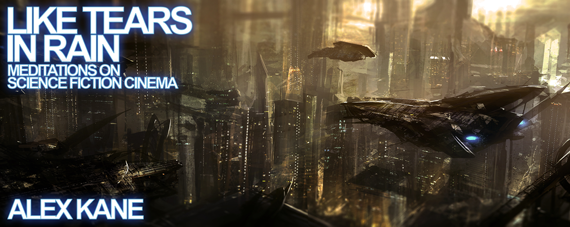
I’m sitting with a group of friends in the Seminary Street Pub, familiar faces here and there casting shadows upon near-forgotten memories, making plain the slippery nature of time and life. Red neon lights drench the dark paint of the walls. I watch my last beer swirl, dizzying, half-gone, inside a green glass bottle as I peel off the metallic label. . . .
After we went to dinner, my fiancée suggested we skip out on Iron Man 3. There’s always tomorrow, she pointed out—and quite rightly. Hell. We can always watch Silver Linings Playbook at home. True, true.
Days later, I’m still thinking about Duncan Jones’s Moon anyway. About the column I was supposed to write half a week ago. Loneliness fostered by distance and time and sheer solitude.
One can only imagine how it must feel to live alone on the Moon.
Sam Rockwell’s performance—performances?—may be the closest we’ll ever come to knowing for sure. Certainly I wouldn’t advocate for some lone maintenance man patrolling a lunar harvesting field, digging up barrels of helium-3 and firing them off toward home. How long before you’d break? Before you’d be willing to take your life’s work, and just overturn it all?
Rockwell’s character, Sam Bell, represents the best in science fiction cinema. He’s a curious little man, childlike in both his ignorance and curiosity; he dares to challenge that which he finds suspicious or otherwise dissatisfactory.
Through his stumbling about, watching his mirror image deteriorate before his very eyes and then seeking to unleash knowledge upon an unsuspecting, corporate-dominated world . . . we expect and demand great things of him. We feel the pain of his loss as he realizes that he’s lost his wife already, even before he was born—and as it dawns on him that he’ll only last for the three brief years it takes to fulfill his “contract.”
Such is the curse of the blue-collar man in today’s world. We are obliged to spend so much of our precious lives on the clock, toiling in the midst of some great machinery at once incomprehensible but also quite basic. Inching our overlords toward some fabled bottom line.
But I think the gift of Jones’s quiet science fiction film may be the sense of hope, of justice, that is to be grasped from the larger tragedy of the working individual’s life amid tedium.
We have those rare opportunities to expose indiscretions, and to show the world what profit-obsessed institutions are capable of inflicting on human beings at the level of the underpaid, more-than-likely desperate individual.
How our jobs take us away from the ones we love and the moments we treasure, leaving us with little more than the fading memories of some idealized past, held in high regard but only ever glimpsed in the act of reflection: in some dusty old mirror, near-forgotten in the attic of the mind.










